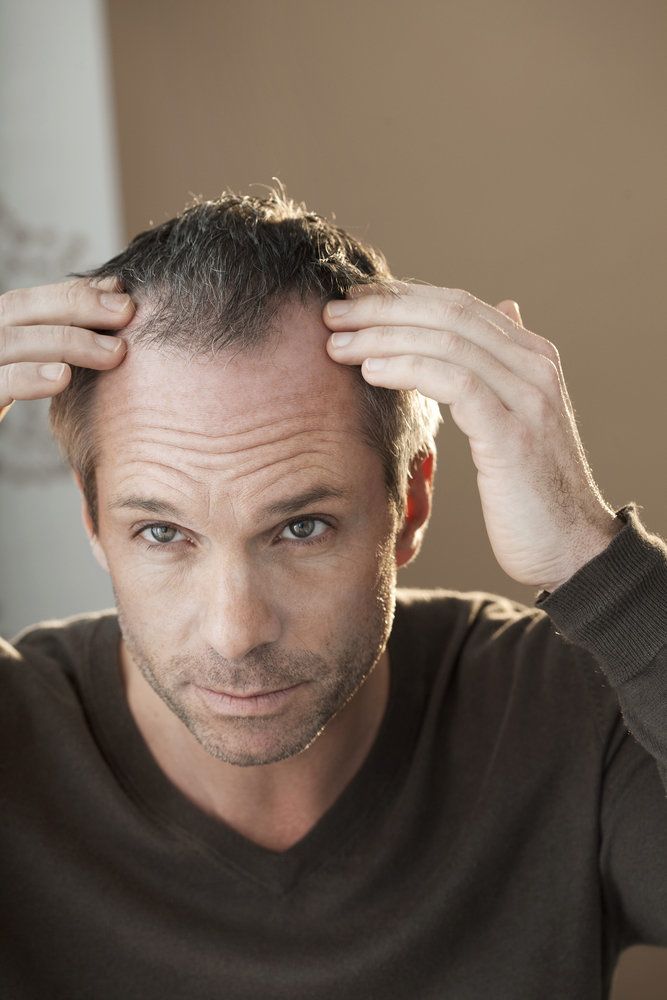Understanding Slow vs. Rapid Hair Loss
 Millions of Americans are affected by hair loss. Most assume that all hair loss is related to aging or genetics. However, there are a number of factors that can affect hair loss.
Millions of Americans are affected by hair loss. Most assume that all hair loss is related to aging or genetics. However, there are a number of factors that can affect hair loss.
At True & Dorin, our doctors understand the various hair loss causes, including genetics, stress, trauma, and illness. We offer a wide range of hair loss treatments that address the causes of hair loss, and allow patients to restore fullness to the hairline so that they can feel confident in their appearance.
Here, we go over the differences regarding slow vs. rapid hair loss, and how our New York, NY patients can best address their unique case of hair loss.
Slow Hair Loss
Most people who experience hair loss notice a gradual change in the thickness of their hair and the natural position of the hairline. It is common for hair loss to slowly increase over time until, eventually, there are obvious areas of thinness or baldness. Slow hair loss can affect both men and women and is often referred to as male or female pattern baldness.
The following are the most common causes of slow hair loss:
- Age: Evidence shows that age is a factor when it comes to male and female pattern baldness. In most cases, female pattern baldness begins the 40s, 50s, or 60s. In males, hair loss tends to start earlier. Male pattern baldness often begins when a male is in his 20s, 30s, or 40s. This slow hair loss begins as the hair follicles shrink, and eventually stop growing and fall out.
- Genetics: Genetics is the other big factor to affect slow hair loss. Hereditary balding, which is a condition also known as androgenetic alopecia, is a gradual process that is a result of a sensitivity to androgens, a group of male sex hormones. This pre-disposed sensitivity can affect both men and women, and is a leading cause of male and female pattern baldness.
Slow hair loss is the most common type of hair loss to be treated at True & Dorin. Our doctors offer a wide range of hair loss treatments for male and female pattern baldness, including medication and surgical treatment (such as hair transplant surgery).
Rapid Hair Loss
Rapid hair loss differs from slow hair loss. Rather than a slow and subtle change in the hairline or overall volume of the hair, patients will notice the sudden appearance of bald patches. Rapid hair loss tends to be caused by external forces, rather than internal forces.
Common causes of rapid hair loss include:
- Stress: Stress can have a big impact on a person’s physical and mental health, as well as their overall well being. In some people, excess stress can lead to hair loss. Stress can affect the natural hair growth process, but it can also lead to a condition called trichotillomania, in which a person plucks or pulls hair out.
- Trauma: Trauma is another potential cause of rapid hair loss. Trauma can describe a wide range of situations, including emotional trauma and physical trauma. Some specific types of trauma that could result in rapid hair loss include injury, a burn, chemical hair damage, or the loss of a loved one.
- Illness: Illness can affect hair growth. As the body responds to illness, certain nutrients may be sent to other areas of the body to assist with healing. This depletes nutrients from the hair and can lead to rapid hair loss. Similarly, some illnesses require medical treatment that has a side effect of rapid hair loss. Chemotherapy is the most obvious example of this.
Rapid hair loss does not always require treatment in the form of medication or hair transplant surgery. In most cases, once excess stress, trauma, or illness has passed, the hair will gradually grow back. However, if a patient feels self-conscious as they wait for hair to grow back or if hair comes back thinner than the patient would like, our doctors may be able to offer appropriate hair loss solutions.
Contact Us
If you have suffered from slow or rapid hair loss, the experienced doctors at True & Dorin may be able to help you restore a thick head of hair and full hairline. Contact us at your earliest convenience to discuss your concerns, and learn more about the hair loss treatments offered at our clinic.


